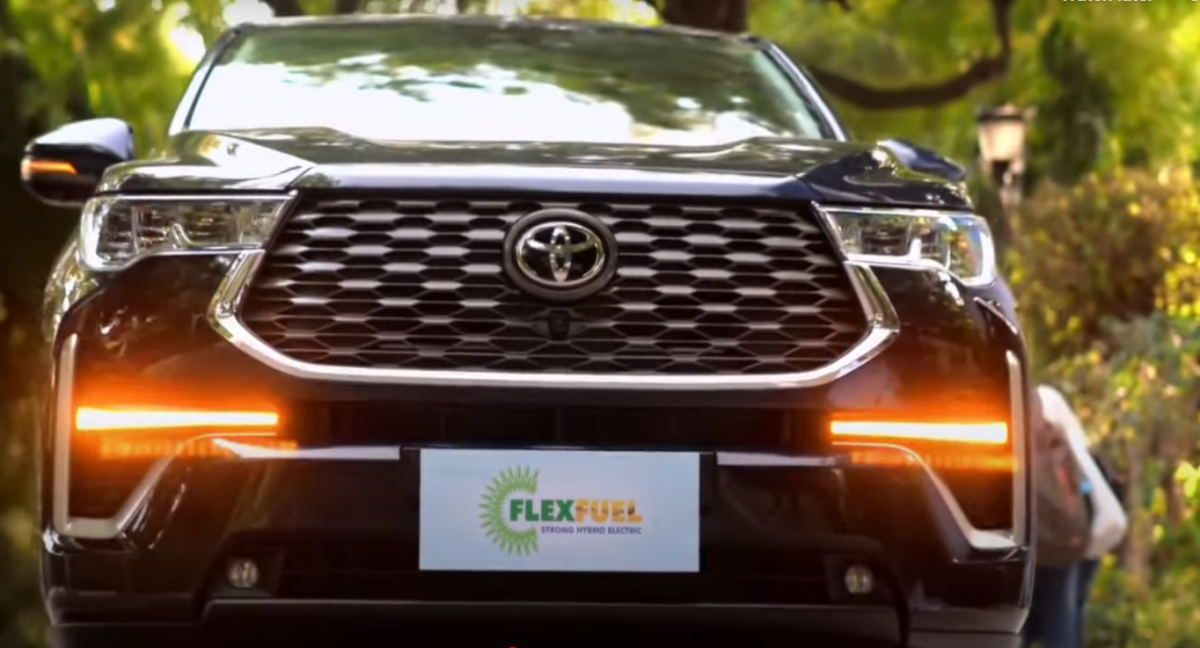Union Minister of Road Transport and Highways, Nitin Gadkari, unveiled today a prototype of Toyota Kirloskar Motor’s electrified flex fuel vehicle in India. The car, based on the Innova Hycross model, is designed to be compatible with India’s stricter emission norms BS 6 (Stage II).
Electrified flex-fuel vehicles have both a flex-fuel engine as well as an electric powertrain, offering higher use of ethanol combined with better fuel efficiencies.
The vehicle can run on any of the higher ethanol blends beyond 20%. It can provide 30-50% higher fuel efficiency, running 40-60% in EV mode with the engine shut off. The vehicle uses minimal advanced chemistry batteries (1.3-1.5 kWh compared to 40-60 kWh for battery electric vehicles).
Unveiling the prototype, Gadkari said, “Ethanol, being an indigenous, clean and renewable fuel, holds a promising future for India. The government focuses on ethanol for achieving energy self-reliance, spurring farmers’ incomes, and having a better environmental impact. The Government’s plan is not only to diversify agriculture surpluses towards the energy sector but also generate wealth from waste using 2G technology for producing ethanol from bio-waste.”
India is endowed with renewable energy, surplus sugar, food grains, and biomass. The abundantly available sugarcane, excess food grains, and huge biomass waste can be used to produce ethanol that can substitute a significant amount of petrol used by vehicles in the shortest possible time. Ethanol can also be produced from plant waste or residues, which are otherwise burnt, causing widespread pollution in northern parts of India.
This content is protected by copyright and may not be reused. If you want to cooperate with us and would like to reuse some of our content, please contact: editors@pv-magazine.com.









By submitting this form you agree to pv magazine using your data for the purposes of publishing your comment.
Your personal data will only be disclosed or otherwise transmitted to third parties for the purposes of spam filtering or if this is necessary for technical maintenance of the website. Any other transfer to third parties will not take place unless this is justified on the basis of applicable data protection regulations or if pv magazine is legally obliged to do so.
You may revoke this consent at any time with effect for the future, in which case your personal data will be deleted immediately. Otherwise, your data will be deleted if pv magazine has processed your request or the purpose of data storage is fulfilled.
Further information on data privacy can be found in our Data Protection Policy.